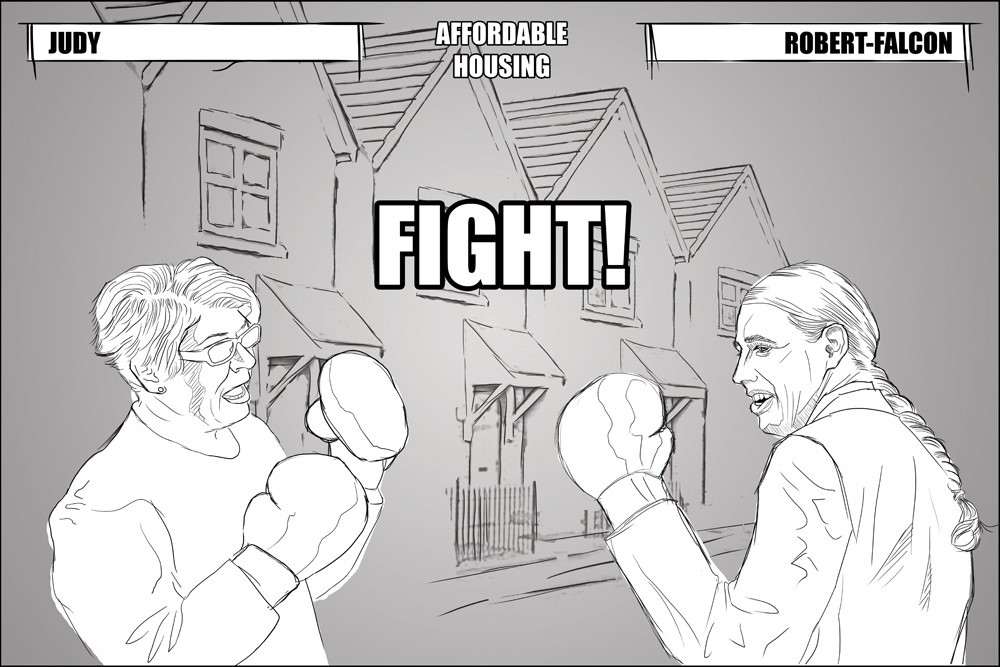The fight for space
Mayoral candidates respond to Winnipeg’s affordable housing shortage
Winnipeg is facing a shortage of affordable housing options. At least that’s what Winnipeg’s mayoral candidates are saying. Four of the seven candidates have pledged to increase the number of affordable housing units in the city if elected to office.
Allison Reimer of the University of Winnipeg Students’ Association agrees that the stock of affordable housing in the city is critically low and she describes her experience of apartment hunting as very competitive.
“There were apartments we would show up to where we would be one of thirty people trying to see that one unit,” Reimer says.
Rebecca Schur, a rhetoric student currently living in residence, has difficulty finding a place for under $800 a month. She says dealing with things like pests, structural issues and unreliable landlords are draining and headache-inducing.
According to the 2011 National Household Survey, a quarter of Canadians spend more than 30 per cent of their income on housing and shelter costs. 23.1 per cent of Winnipeg renters live below “core housing need” as defined by the Canada Mortgage and Housing Corporation (CMHC).
Mayoral candidate Judy Wasylycia-Leis’s housing policy centers around the use of Tax Increment Financing (TIF) which directs municipal tax revenue to fund community revitalization projects. The poll leader’s plan also includes land prioritization, donation and the merging of economic and social goals.
This plan could frustrate those who wish to see high-profit ventures thrive in Winnipeg, especially given her proposal to disincentivize suburban development by making developers cover the capital costs of new roads, fire halls and schools. When it comes to planning, Wasylycia-Leis says, “The work has already been done.”
Robert-Falcon Ouellette, the election’s charismatic underdog, has a plan similar to Wasylycia-Leis, though he goes a few steps further. One of his central proposals is taxing surface parking lots at the same rate as a four-storey condo. The hope is to encourage infill development instead of continuing urban sprawl.
Ouellette also wants to see new housing projects set aside units as low-profit affordable housing alongside high-end condos and has pledged to build 800 affordable housing units a year.
David Sanders touches on many of the ideas floated by other candidates during a brief conversation, but stresses the need for the City to “exert any and all influence it has” in increasing the stock of affordable housing. He also says he would like to see developers meet strict requirements for a percentage of affordable units to qualify for programs such as TIF.
Sanders says before any progress can be made, the decision-making system at City Hall has to be fixed, starting with an overhaul of the senior administration. He sees himself as the most financially realistic candidate, citing his governance and urban planning experience.
“I have solutions that I plan to implement,” Sanders says.
Brian Bowman, the candidate polling at second place, did not return The Uniter’s request for comment by press time. Bowman has not spoken much on affordable housing, but generally supports a shift in civic focus towards infill development and plans to revitalize downtown through community centres, events and a major grocery store.
Additionally, The Uniter did not receive responses from Michel Fillion, Paula Havixbeck or Gord Steeves on this topic.
Published in Volume 69, Number 7 of The Uniter (October 15, 2014)







